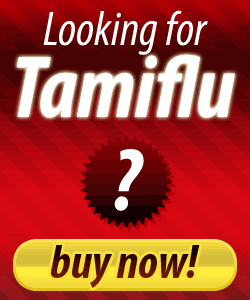Bulgaria intends to launch a nationwide surveillance operation, tasked to determine if pharmacies are equipped with anti-viral drugs, and if, in particular, they are equipped with Tamiflu and Relenza, Bulgarian National Television (BNT) reported on November 10 2009.
More importantly, investigators are to ensure that pharmacists sell Tamiflu and Relenza only with medical prescriptions, the report said.
Fines for illegitimate sales of anti-viral drugs varied between 1000 and 3000 leva. According to the medical authorities, "the aim of the operation was to prevent self-administered medical treatment" as drugs like Tamiflu and Relenza should be consumed only with specific medical advise, BNT said.
"The administration of such drugs, without it being necessary, could inadvertently cause the H1N1 strain to build resistance against these drugs" a statement from the Health Ministry said.
The average rate of infection in the country had reached 265 per 10 000 and there were now reportedly over 175 000 people sick with the H1N1 strain or swine flu. Two more people succumbed to the strain on November 9, aged 15 and 52.
Meanwhile across the border, Greek medical authorities were presented with a different problem related to the strain. The mass inoculation programme aimed to tackle the H1N1 onslaught was met with stiff resistance from the local population, Greek daily Kathimerini reported on November 10 2009.
According to a poll conducted by Kathimerini, nearly 60 per cent of those interviewed, dismissed the jab as unnecessary and did not intend to proceed with the inoculation at all.
Over 70 per cent said that they were not afraid of physical contact with people in the street, while 80 per cent were not bothered to even consider wearing facial protection in crowded areas. Half those interviewed said they frequent pubs and nightclubs as much as they had done prior to the influenza outbreak.
Finally, "just over half of Greeks felt that the measures taken by the government to combat or treat the virus were adequate" Kathimerini said.
Greek health minister Mariliza Xenogiannakopoulou announced on November 9 2009 that the inoculation programme would commence on November 16.
More importantly, investigators are to ensure that pharmacists sell Tamiflu and Relenza only with medical prescriptions, the report said.
Fines for illegitimate sales of anti-viral drugs varied between 1000 and 3000 leva. According to the medical authorities, "the aim of the operation was to prevent self-administered medical treatment" as drugs like Tamiflu and Relenza should be consumed only with specific medical advise, BNT said.
"The administration of such drugs, without it being necessary, could inadvertently cause the H1N1 strain to build resistance against these drugs" a statement from the Health Ministry said.
The average rate of infection in the country had reached 265 per 10 000 and there were now reportedly over 175 000 people sick with the H1N1 strain or swine flu. Two more people succumbed to the strain on November 9, aged 15 and 52.
Meanwhile across the border, Greek medical authorities were presented with a different problem related to the strain. The mass inoculation programme aimed to tackle the H1N1 onslaught was met with stiff resistance from the local population, Greek daily Kathimerini reported on November 10 2009.
According to a poll conducted by Kathimerini, nearly 60 per cent of those interviewed, dismissed the jab as unnecessary and did not intend to proceed with the inoculation at all.
Over 70 per cent said that they were not afraid of physical contact with people in the street, while 80 per cent were not bothered to even consider wearing facial protection in crowded areas. Half those interviewed said they frequent pubs and nightclubs as much as they had done prior to the influenza outbreak.
Finally, "just over half of Greeks felt that the measures taken by the government to combat or treat the virus were adequate" Kathimerini said.
Greek health minister Mariliza Xenogiannakopoulou announced on November 9 2009 that the inoculation programme would commence on November 16.




No comments:
Post a Comment
Note: Only a member of this blog may post a comment.